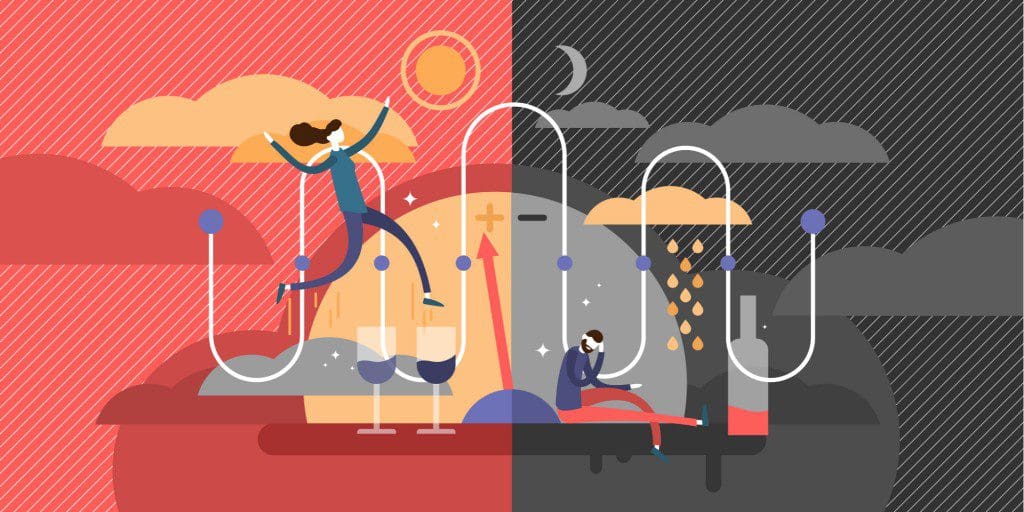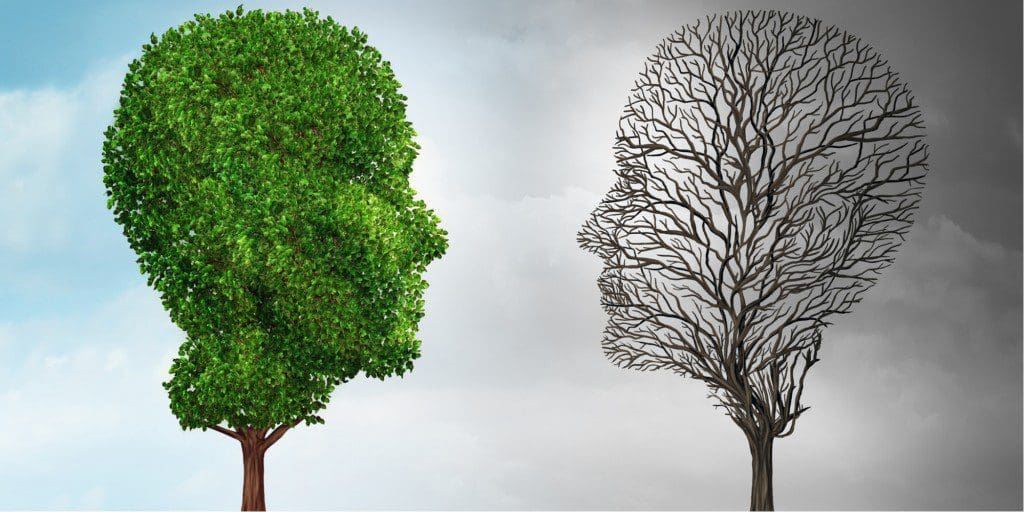If you or a loved one is struggling with the symptoms of bipolar disorder, know that you are not alone. Millions of people in the United States struggle with this mental illness every day. This condition is often misunderstood and stigmatized by the general population as an illness that makes you “crazy.” However, this is far from the truth.
Treatment for bipolar disorder is possible and can help you to manage your symptoms in order to live a healthy, happy life. To learn more about bipolar disorder, including its symptoms and where you can find treatment, continue reading the article below.

Bipolar disorder is a mood disorder that can influence the way you think, feel, and behave. Oftentimes, people develop symptoms around the age of 25, though it can happen in teenagers and, even more rarely, in children.
There are different reasons as to why people develop bipolar disorder. To start, genetics is a major contributor in determining your risk of developing this condition. This means that if bipolar disorder or other mental health conditions run in your family, you are more likely to also experience symptoms.
Additionally, people can sometimes develop bipolar disorder if they have grown up in an unsafe environment or experienced a lot of trauma. Moreover, the longer that this disorder is left untreated, the more intense the symptoms can be. For people with bipolar disorder who do not have a solid support system, it is more common for them to have a hard time in managing their symptoms, which can lead to unhealthy coping mechanisms, such as turning to drugs or alcohol. In most cases, bipolar disorder is caused by a combination of all of these risk factors.
There are different types of bipolar disorder and all of these can cause different symptoms, ranging from mild to severe. In order to be diagnosed with one of the types of this condition, a mental health professional will document your family history, any past experiences with mental illness, and your current symptoms. Then, if you receive a diagnosis, you should be able to find treatment that is specific to the type of mental health condition you have.
Types of Bipolar Disorder
According to the National Institute of Mental Health, there are three main types of bipolar disorder, which are described as follows:

The symptoms of bipolar disorder vary depending on the type of disorder you have. Moreover, you might experience a handful of different symptoms based on your personal experiences. Common symptoms include:
In addition to these symptoms, some people with bipolar disorder have psychotic symptoms in which they might have hallucinations or experience delusions. Furthermore, people with this disorder who have psychotic symptoms often find themselves struggling with a number of co-occurring mental health conditions such as anxiety, eating disorders, or addiction.
Many people with this mental disorder find it challenging to seek help regardless of their symptoms. You might feel “crazy” or feel as though you are not yourself when you are struggling with these symptoms. However, there are modern treatment approaches to bipolar disorder that can help you manage your worries about this condition.
If you are seeking treatment for bipolar disorder or any other mental health conditions, the first step is to find a facility that offers multiple treatment approaches to assist with your recovery goals. For many people with mental health issue, residential behavioral health programs are extremely beneficial for short- and long-term recovery.
Residential psychiatric programs are made to keep you in a safe, supportive environment while you recover from mental health symptoms. Through residential treatment, you will receive treatment opportunities such as one-on-one counseling.
In these sessions, a mental health professional will help you to heal through talk therapy and cognitive behavioral therapy (CBT). Both of these therapies focus on changing negative thought patterns and unhealthy coping mechanisms so that you can manage your symptoms safely.
Additionally, your behavioral health program will offer medication management. Medication is a wonderful way to manage your symptoms. But finding the right type and dosage can be challenging and even dangerous when you are not under the care of a mental health professional. This is why it is important to have the support of experts as you receive treatment. They will be able to monitor any changes in symptoms, whether positive or negative, as you work to find the medication that is best for you.
Further therapy options include:
Dual diagnosis treatment is particularly important when you have bipolar disorder as well as a substance use disorder. The dual diagnosis program is created to treat any mental health conditions alongside addiction. Remember, you cannot fully heal from one disorder without treating all of your symptoms and their underlying causes.
If you are ready to learn how to manage your symptoms of bipolar disorder, the trained mental health professionals at Baton Rouge Behavioral Hospital are here to help. At our facility, you have access to all of the services listed above and more. Most importantly, you don’t have to feel ashamed of your mental illness with us.
For more information, you can call Baton Rouge Behavioral Hospital: (225) 567-8698 or fill out our confidential contact form today. We are here to lift you up in your lowest moments and keep you feeling well as you recover.
